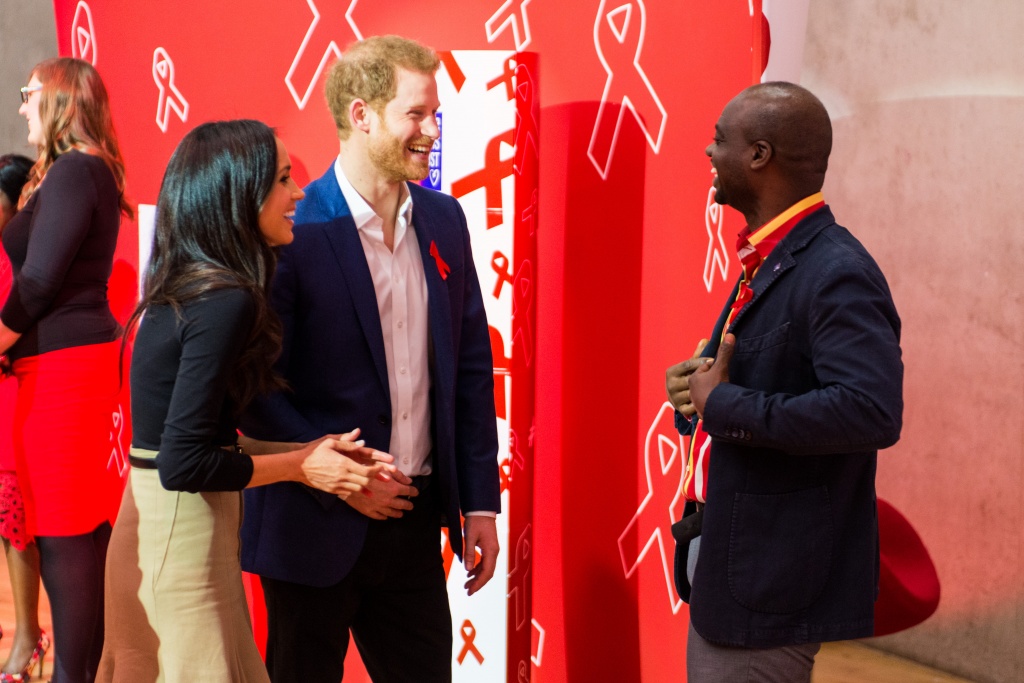
Dr Catherine Chima-Okereke a Specialist Adviser to the Care Quality Commission (CQC) is African Voice Newspaper guest writer in this two part series on HIV/AIDS.
HIV (Human Immunodeficiency Virus) infection is when someone is infected with the HIV virus. AIDS (acquired immune deficiency syndrome) is the term used to describe potentially life-threatening illnesses that occur when the immune system has been damaged. One can be infected with HIV without having AIDS. HIV positive individuals may have conditions that people without HIV infection have, but in a more severe form. These are described as HIV-related illnesses. For example, someone who has never had a skin condition may all of a sudden develop severe skin problems. They may start having recurrent chest infections. Finally, when the immune system breaks down, they may develop life threatening conditions called AIDS defining illnesses such as tuberculosis, lymphomas, invasive cervical cancer, Kaposi sarcoma, HIV wasting syndrome, progressive multifocal leukoencephalopathy, etc. Not everyone with these illnesses have HIV/AIDS.

What Are the Symptoms of HIV?
The symptoms of HIV depend on the person and what stage of the disease they are in. There are the three stages of HIV infection:
Stage 1: Acute (Primary) HIV Infection – This often happens within two to six weeks after infection with HIV. About two-thirds of people will have a flu-like illness. This is the body’s natural response to HIV infection; that is, when the body’s immune system puts up a fight. The symptoms are similar to those of other viral illnesses; they are often likened to the flu. These flu-like symptoms can include the following: headache, fever, chills, sore throat, tiredness, rash, night sweats, muscle aches, mouth ulcers and swollen lymph glands. The symptoms can last from a few days to several weeks before they go away. Some people may not have any symptoms at all during this early stage of HIV.
If someone has symptoms like these and feels that they may have recently come in contact with someone with HIV, it is advisable that they should get an HIV test. Even if they do not have symptoms, it is still advisable they should get tested.
Early testing is important for two reasons: Firstly, at this stage, the level of HIV (virus) in the blood and bodily fluids is very high. This makes it very infectious. Secondly, starting treatment as soon as possible might help boost your immune system and reduce the symptoms. If an HIV positive individual is on treatment and the virus is not detectable in the blood and body fluids, they cannot transmit the infection to someone else.
A combination of HIV drugs called antiretroviral therapy (ART) can help fight HIV, keep the immune system healthy, and keep the individual from spreading the virus. If these medications are taken regularly, the chances are that the HIV infection will probably not get worse.
Stage 2: Chronic HIV infection or Clinical Latency Symptoms
After the immune system loses the battle with HIV, the flu-like symptoms will go away; but there is still a lot going on inside the body. The virus continues to multiply, probably at a low level and the person may not experience any symptoms. They may not even realise that they are infected and that they can pass HIV on to others. However, the virus remains active during this stage.
There are cells called CD4 T cells, which coordinate the immune system’s response. During this stage, untreated HIV will kill CD4 cells and destroy the immune system. Without treatment, the number of CD4 cells will drop, and the person will be more likely to get other infections. If the person is taking ART, the person might stay in this phase for decades.
Stage 3: Acquired immunodeficiency syndrome (AIDS) – AIDS Symptoms
If left untreated, HIV leads to AIDS which can weaken the immune system, causing several opportunistic diseases – illnesses that occur more often in people who have weakened immune system. Some of these, such as Kaposi’s sarcoma (a form of skin cancer), pneumocystis pneumonia (a lung disease) and tuberculosis, are also considered as “AIDS-defining illnesses”. This is the advanced stage of HIV infection and usually occurs when the CD4 T-cell number drops below 200 and the immune system is badly damaged.
Symptoms of AIDS include the following: unexplained weight loss, long-lasting diarrhoea, recurring fever, easy fatigability, soreness of the mouth, anus or genitals, night sweats, shortness of breath, swollen lymph nodes in the neck, armpits or groin, unexplained bruises or bleeding, memory loss, depression, purplish or dark spots on the skin that will not go away, intractable yeast infection in mouth, throat or vagina.
How often should one get tested?
It is advisable that everyone aged 15 through 64 should get tested one time, regardless of their risk factors.
People who have occasional exposure to HIV risks should be tested at least once a year.
Those who are at high risk for HIV infection, such as men who have sex with men (MSM), people from HIV prevalent areas and those who perceive that they have put themselves at high risk of HIV, should get tested every 3 to 6 months.
Is it possible to have HIV and not have AIDS?
Indeed. HIV infection is when one is infected with the Human Immunodeficiency virus. AIDS is when the immune system breaks down or the person develops opportunistic diseases or the CD4 cell count goes below 200. Opportunistic diseases are illnesses that occur more often or are more severe in people with weakened immune system. CD4 cells, also known as T cells, are white blood cells that fight infection and play an important role in the immune system.
Are HIV/AIDS patients susceptible to COVID-19?
COVID-19 is a relatively new disease. As a result, we are still learning about it and how it affects people with HIV. Based on limited data, it is believed that people with HIV who are on effective HIV treatment have the same risk for COVID-19 as people who do not have HIV. Older adults and people of any age who have serious underlying medical conditions including those who have AIDS might be at increased risk of severe illness with Covid-19. This includes people who have weakened immune systems. The risk for people with HIV getting very sick is greatest in people with a low CD4 cell count, and people who are not on effective HIV treatment (antiretroviral therapy or ART).
Dr Catherine Chima-Okereke is Consultant/Director of Herefordshire Integrated Sexual Health & HIV Services. She has worked in the U.K. health industry for over thirty years. She worked in the NHS from February 1991 to March 2019 and has been in senior management since 2003. Catherine is now applying her wealth of clinical and management experience in the independent sector – Solutions4Health. She has broad clinical experience – Medicine, Obs/Gynae, Genitourinary Medicine (GUM), Contraception, HIV Medicine, Mental Health & Forensic Medicine.
Kindly follow us on twitter:@AfricanVoice2









